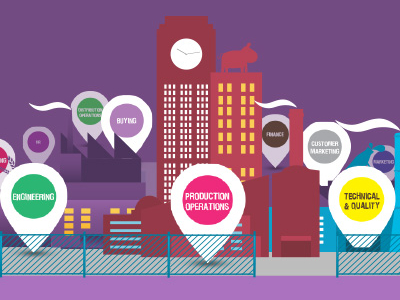What’s it all about then?
As Shift Engineer, you’ll be on the front line making sure that equipment runs smoothly to avoid delays and stoppages. It’s a really varied role, and you never know where you’ll be needed next, but you’ll always be ready to spring into action and face any problem you come across, quickly and effectively – with a safety first approach.
What might I be doing?
Every day will be different, but could include:
- Attending breakdowns and stoppages to help keep process running
- Servicing and preventive maintenance of equipment and machinery
- Responding immediately to production related breakdowns
- Repairing faults or arranging replacements if needed
- Diagnosing faults quickly for repair
- Keeping production staff and managers updated on progress
- Working safely and effectively to get the job done
- Working as part of a team of engineers
- Working past the end of the shift if necessary to finish off breakdown repairs
What will be expected of me?
You’ll need to be a pro-active engineer, who’s always looking for practical, innovative ways to improve equipment maintenance and usage, to reduce stoppages.
You’ll need to strictly stick to all food safety standards, so a background in food manufacturing will be a huge advantage – having spent time as a fitter, electrician or multi-skilled technician in a similar environment.
Working closely with other engineers, technicians, support staff and operators, you’ll keep everyone informed with details of planned maintenance and unexpected stoppages, and give accurate timescales for repairs – enabling effective planning and efficient production.
What can I expect?
Working alongside your team, you’ll be responsible for all of the repair work and preventive maintenance right across the business.
The biggest challenge in this role is problem solving under pressure. There are a huge number of different pieces of equipment to learn about and maintain, working against the clock to maintain production schedules.
What qualifications do I need to get in?
At least a four year apprenticeship and related qualification in engineering electrical and mechanical engineering. The EDEN Engineering Apprenticeship is one of the best starting points for this role as it not only combines an Engineering qualification and knowledge with the general experience gained through the apprenticeship, but it also provides specific contextualised understanding of the Food industry. The apprenticeship also leads to a ‘multi skilled’ Engineer (Electrical and Mechanical) which attracts higher pay. Most EDEN graduates would be offered the chance to complete their Higher National Certificate or Diploma once they started in this role and with the right application expect to move into a Team Leader role within 2-5 years.
What about further training?
You’ll continue training to achieve highest level of site and plant skills, as well as progressing core skills as required – plus you’ll assist in the development of other engineers, apprentices and production staff.
There are lots of qualifications and training options available to you as an engineer – you may take specialist courses which help you do your job better (such as those offered by equipment manufacturers). Or you may want to consider an HNC in Engineering or a qualification in management and leadership.
Anything else I might need to know?
You can expect a lot of variation in the job because, no matter how well your preventative maintenance plans are working there will be major breakdowns which will require your full attention.
 cy
cy





